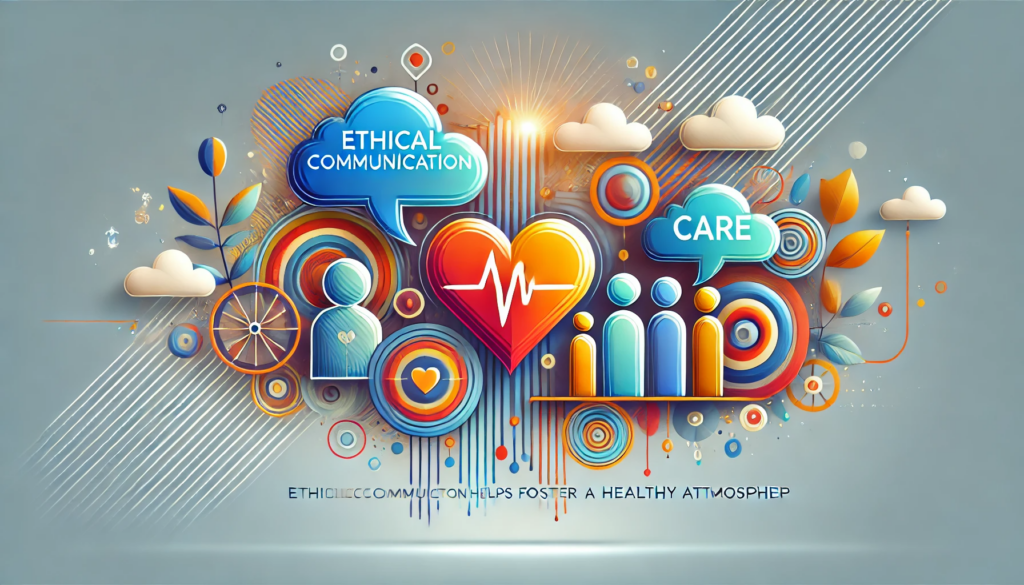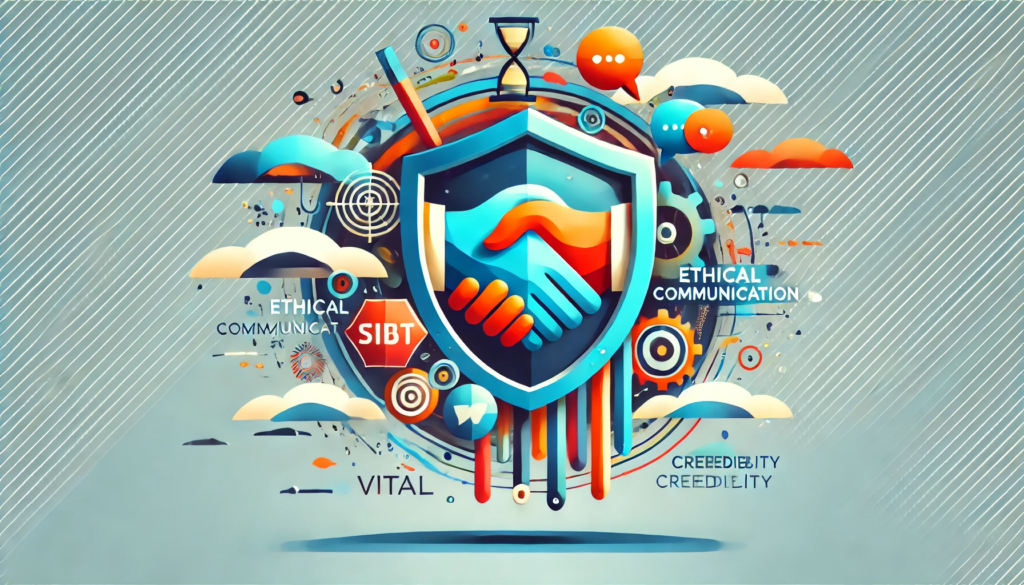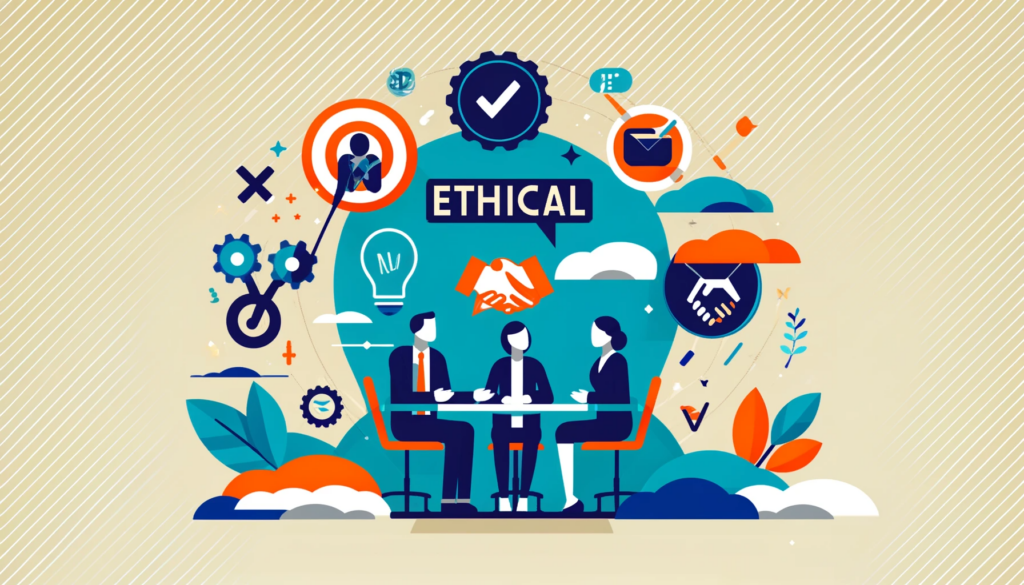Ethical communication stands as the cornerstone of building deep, meaningful connections that are not only respectful but are rooted in the virtues of honesty and clarity. Whether it’s navigating the complexities of workplace dynamics or managing personal relationships, the essence of ethical communication lies in engaging in transparent, truthful interactions and upholding stringent ethical standards. This approach is crucial for fostering trust, enhancing collaborative efforts, and cultivating a positive culture within organizations.
But the importance of ethical communication extends beyond face-to-face interactions. In today’s digital world, where every click and conversation can be stored indefinitely, ethical communication becomes essential for safeguarding privacy and ensuring data security. Wondering how you can harness the power of ethical communication to transform your personal and professional life? Stick with us as we delve deeper into the principles, strategies, and profound impact of mastering this indispensable skill set. Get ready to unlock the secrets of ethical communication that could redefine your interactions and lead to more successful and fulfilling relationships.
Understanding Ethical Communication
Let’s turn our attention to understanding ethical communication. Firstly, you’ll need to grasp what ethical communication really means and its scope.
Then, we’ll look into why it’s particularly important in the workplace.
Definition and Scope of Ethical Communication

Diving into the realm of ethical communication, you’ll find it’s deeply rooted in principles like honesty, transparency, and responsibility, shaping the way organizations operate and interact. Ethical communication refers to the exchange of information that adheres to moral and value-based standards, fostering respectful and transparent interactions in both personal and professional settings.
- Basic Principles:
Ethical communication is grounded in honesty, respect, and transparency. It entails straightforward and clear dialogue, free from deception or misdirection. - Scope:
Ethical communication isn’t confined to the workplace; it extends to all areas of life, underscoring the importance of truthful and respectful exchanges in all interactions. - Commitment:
A commitment to ethical communication involves upholding these principles consistently, adhering to ethical standards even in challenging situations.
Importance in the Workplace
Understanding the importance of ethical communication in the workplace is crucial for fostering a healthy and productive work environment. Ethical communication is the bedrock of business ethics, underscoring the importance of honesty, respect, and integrity in professional settings. It’s about aligning your communication style with the ethical code and guidelines of the organization.

By adhering to ethical practices in your communication, you foster trust within your team. This trust, in turn, fuels teamwork and collaboration, which are key ingredients to the overall organizational effectiveness.
Here’s a quick breakdown to illustrate this:
| Ethical Communication | Impact | Outcome |
|---|---|---|
| Trust | Fosters a culture of honesty and openness | Enhances teamwork and collaboration |
| Ethical Practices | Aligns with the company’s ethical code | Boosts overall organizational effectiveness |
| Professional Settings | Encourages adherence to ethical guidelines | Promotes a healthy, productive work environment |
Principles of Ethical Communication
As we move forward in our exploration of ethical communication, let’s focus on its guiding principles.
Honesty and transparency form the bedrock of this practice, fostering a sense of trust and clarity in all interactions.
Equally important is the principle of responsibility and accountability, which ensures your words and actions align with ethical standards.
Honesty and Transparency
Honesty in communication, a cornerstone of ethical practices, demands that you always stick to the truth. Meanwhile, transparency contributes to building trust by being open and clear, helping to prevent misunderstandings. Both of these are basic principles of ethical communication.
Honest communication isn’t just about telling the truth; it’s also about presenting it in a way that’s easily understood. This means avoiding jargon and anything that might confuse your audience. You’re being truthful, not just with the facts, but also with your intentions.

Transparency, on the other hand, is about open communication. It involves not just speaking, but also listening, and being willing to receive feedback. It’s about creating an environment where everyone feels comfortable to express their thoughts and ideas.
To summarize, the principles of honesty and transparency in communication practices can be broken down as follows:
- Always stick to the truth and present it in a clear and understandable way.
- Foster an environment of open communication where everyone feels safe to express their ideas.
- Be open to feedback and willing to adjust based on it.
Adhering to these ethical principles can build trust, prevent misunderstandings, and foster a healthier communication environment.
Responsibility and Accountability
In the realm of ethical communication, embracing responsibility for your words and actions is non-negotiable, as it paves the way for accountable and reliable interactions. This principle of communication ethics isn’t just about taking responsibility, but also understanding the impact of your words and actions on others.

It’s about being accountable for the consequences, whether positive or negative. This sense of responsibility and accountability is a foundation for ethical interactions and a key component of ethical business practices. It’s about making sure that your actions align with the expectations of others, thereby ensuring a more positive reputation.
When you demonstrate responsibility in communication, you show respect for others and foster a sense of trust.
Ethical Communication in Practice
Now let’s talk about how ethical communication plays out in the real world.
You’ll discover strategies for communicating ethically and effectively, and learn how to overcome common barriers that might stand in your way.
Strategies for Ethical Communication
You can put ethical communication into practice by embracing strategies like active listening, articulating your thoughts clearly, and ensuring your conversations are inclusive. As a good ethical communicator, you should remember that communication is always a two-way process. It’s not just about expressing your thoughts but also about understanding the viewpoint of others.

Practicing ethical communication helps foster a healthy atmosphere, whether it’s in an office setting or in your personal life. This approach plays a crucial part in ethical business practices and aids in building trust among peers.
Here are three strategies to help you enhance your ethical communication:
- Active Listening: Always pay attention to what others are saying and show that you value their input. This not only helps in gaining a complete understanding but also aids in building strong relationships.
- Clear Articulation: Express your thoughts and ideas clearly. Avoid any kind of ambiguity as it can lead to misunderstandings.
- Ensuring Inclusivity: Make sure your conversations are inclusive. Give everyone a chance to express their thoughts, and respect their opinions even if they differ from yours.
Overcoming Common Barriers
While practicing active listening, clear articulation, and ensuring inclusivity aids ethical communication, it’s equally important to address and overcome common barriers that can hinder this process. Notably, barriers to ethical communication often stem from cultural differences and personal biases. These communication obstacles can obstruct effective communication, thereby leading to misunderstandings, conflicts, and potentially, reputational consequences.
Cultural differences can create disparities in understanding and interpreting messages. Therefore, it’s crucial to be aware of and respect these differences. Make an effort to learn about different cultures, especially those most prevalent in your workplace.

Personal biases can also impede ethical communication. These biases can cloud your judgement, leading to unfair treatment or misunderstanding. Being aware of your biases is the first step in overcoming this challenge. Next, strive to eliminate these biases from your decision-making process.
Adhering strictly to your company’s code of conduct can also help overcome these barriers. This code should reflect the ethical communication principles of honesty, respect, and responsibility. By addressing these barriers, you’re not only promoting effective communication but also fostering a more inclusive and ethical work environment.
The Impact of Ethical Communication
You’ll find that ethical communication has a profound impact, particularly in building trust and enhancing a positive organizational culture.
It’s not just about being honest and transparent, it’s about creating an environment where everyone feels valued and heard.
Let’s consider the ways ethical communication can transform your workplace.
Building Trust and Credibility
Building trust and credibility hinges on ethical communication, a vital tool in both personal and professional relationships. The relationship between ethics and communication is closely knit. To implement ethical communication and build trust and credibility, it’s important to understand that ethical communication takes more than just choosing the right words. It’s a commitment to a set of principles that guide every interaction.

Ethical communication is vital to building credibility because it’s rooted in the expression of what’s known to be the truth. Here are three key ethical communication principles you should adopt:
- Clarity: Communication should always be clear, avoiding ambiguity that could lead to misunderstandings.
- Honesty: Stick to the facts. Misinformation can quickly erode trust and damage your credibility.
- Respect: Recognize and uphold the value of every individual’s input. This fosters an environment of trust and open communication.
Enhancing Organizational Culture
Ethical communication significantly shapes a positive organizational culture, promoting values such as respect and integrity at every level. This communication is important as it directly impacts business practices within an organization, fostering morale and loyalty among employees. You need to know about ethical communication as it’s a critical factor in modern business, where your words and actions affect others.

The key to enhancing organizational culture lies in practicing truly ethical communication. This includes avoiding examples of unethical behavior such as lying, spreading rumors, or withholding information. Instead, choosing the right words and actions ensures clarity and honesty, which enhances trust and cooperation within the team.
Ethical Communication and Technology
As we navigate the technological landscape, it’s essential to consider the ethical implications within your communication strategies.
You’ll need to ensure accessibility for all, while also safeguarding privacy and maintaining data security.
Let’s discuss how these principles apply in the realm of digital communication.
Ensuring Accessibility
You need to consider the importance of ensuring accessibility in communication, taking into account individuals with disabilities and those with limited access to technology. As you practice ethical communication, remember that communication isn’t just a one-way street – it’s a type of communication that requires understanding and empathy from both ends.

Inclusivity is a cornerstone of ethical communication. To know about ethical communication is to understand that every type of audience deserves access to information. Communication is vital for any organization and if not managed properly, businesses can face serious backlash for not abiding by certain business values.
Here are three ways you can ensure accessibility in communication:
- Utilize assistive technologies: From screen readers for the visually impaired to closed captions for those with hearing difficulties, it’s crucial to incorporate these in your communication strategies.
- Offer multiple formats: Provide information in different formats—text, audio, and visual—to cater to various access needs.
- Be mindful of digital divide: Not everyone has access to high-speed internet or the latest technology. Make sure your communication is accessible even on low-tech platforms.
Protecting Privacy and Data Security
Navigating the digital world, it’s crucial to remember that protecting privacy and data security is a key aspect of ethical communication. In an age where data breaches are common, it’s your responsibility to ensure that your business is safeguarding sensitive information.
Remember, communication isn’t just about exchanging ideas. It involves securing data, respecting privacy, and upholding trust. Using ethical communication can help your business establish a strong reputation for responsibility and integrity. Ensuring your colleagues, clients, and customers that their information is safe with you can make your business more relatable and trustworthy.


